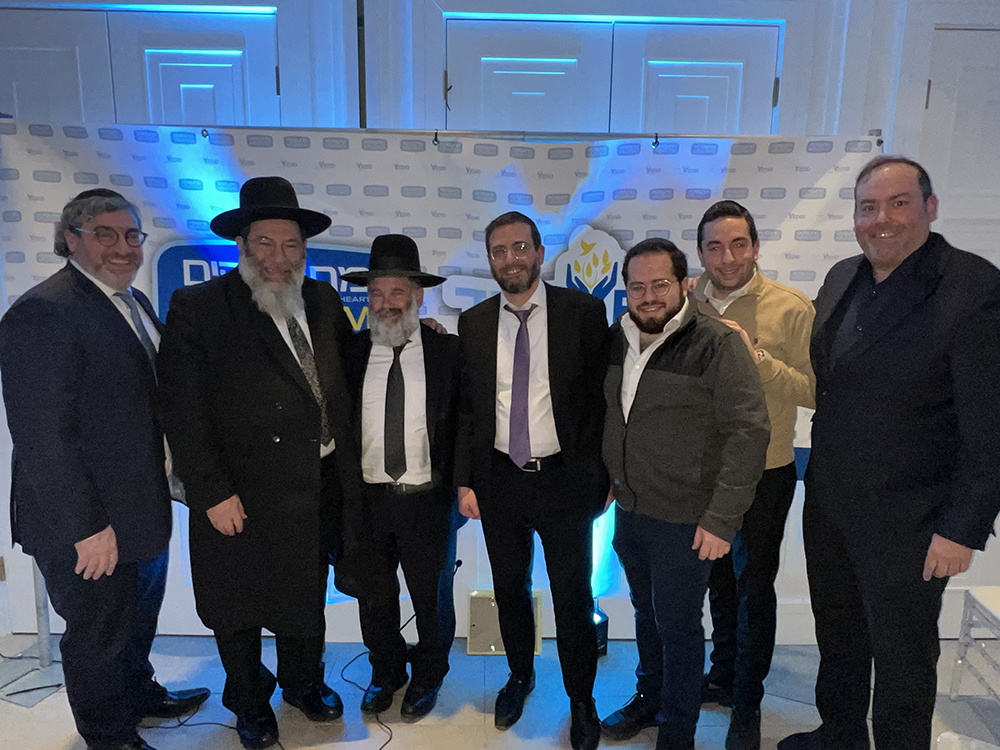In this week’s parshah, Vayikra, the Torah discusses the various offerings one would bring to the Beis HaMikdash – the Holy Temple. In the opening paragraph, the Torah states: “When a man among you brings an offering to Gd, you should bring your offering from animals – from cattle or from flocks” (Vayikra 1:2). In Parshas Vayikra, Hashem’s closeness is revealed to us, and we learn how to maintain our relationship with Hashem and how to show our love toward him.
There is an inherent connection between t’filah and korbanos. The Talmud in B’rachos 6b explains that t’filah is considered the service of Hashem similar to the korbanos (sacrifices) of the Beis HaMikdash. Just as the korbanos served to help man come to the realization of his true essence and to return to Hashem, so, too, does prayer connect man with his inner self, drawing him closer to the true needs and yearnings to Hashem.
However, we must remember that our heart and mind have to be with our davening. Hashem does not want a robot just saying words. T’filos are avodah – hard work, mental conditioning. We have to stay focused on getting closer to Hashem. The focus of the heart and mind are the most difficult, but also the most precious to Hashem.
There is a story told about the Chafetz Chaim, who once noticed that during t’filah, several men were not focused on their davening, and they were highly distracted. At the end of the prayers, the Chafetz Chaim approached these people and shook their hands with the salutation, “Shalom Aleichem – Welcome back.” They asked why he was welcoming them when they had not embarked on any journey. He explained that he noticed that during the davening they had “wandered far away” in their thoughts. Therefore, at the end of the t’filah, when they obviously “returned home” to reality, he welcomed them heartily.
The Baal Shem Tov teaches us that if someone who, after davening, is the same as before davening, it is as if he had not davened. If we are not closer to G-d and a better Jew, then we did not really daven. That is not what Hashem desires.
Rav Shamshon Raphael Hirsch explains that the verb in Hebrew for davening is l’hispalel. It should really be “l’faleil,” to express. Davening is called l’hispalel because if the act of t’filah does not act on us and change us, then we haven’t davened. Rabbi Lerner explains that we can’t just move our lips without concentrating on what we’re saying. That is why davening with kavanah is all important; just saying words does not show desire to get close to Hashem; it is the kavanah behind it.
Our objective with t’filah should be that as we enter the shul, we leave the world. Cell phones are off and minds turned on. We must be strict with ourselves and make sure that we daven from the siddur. Many of us struggle with having kavanah. As we close our eyes to pray, our minds begin to wander. We begin to think about work, family, finances, etc. We must remember that davening is such a gift and gives us the ability to turn to Hashem. We should not waste any opportunities we are given to become closer to Hashem.
List of People Who Need a r’fuah sh’leimah (a complete recovery)
Please recite Psalms 20, 30, 88, 121, and 130.
Yosef Yitzchak HaLevi ben Miriam Devorah
Shalom Dovir ben Shaina Brachah
Shneor Zalman ben Chanah
Shalom Mendel ben Chanah Sarah
Yitzchak ben Yonit Mendal
Menachem Mendel HaKohen ben Chanah
Levi Yitzchak ben Nechamah Dinah
Yaakov ben Elisheva Yael
Yisrael Aryeh Lev ben Miriam
HaRav Ben-Tzion Tuviah ben Ertel
David ben Sarah
Yaakov Yosef ben Paya
Nasan Eliyahu ben Shirin
Yisrael ben Esther Malkah
Zev Dov ben Dinah
Liran Brachah bas Sheindel Leah
Esther Hadassah bas Devorah
Tamar Yael Mina bas Chanah
Yael bas Sharon
Vera Victoria bas Maya Mafrat
Sarah bas Miriam
To add names of individuals who need a r’fuah sh’leimah to next week’s T’hilim column, please email to This email address is being protected from spambots. You need JavaScript enabled to view it. and complete the Google form.
















